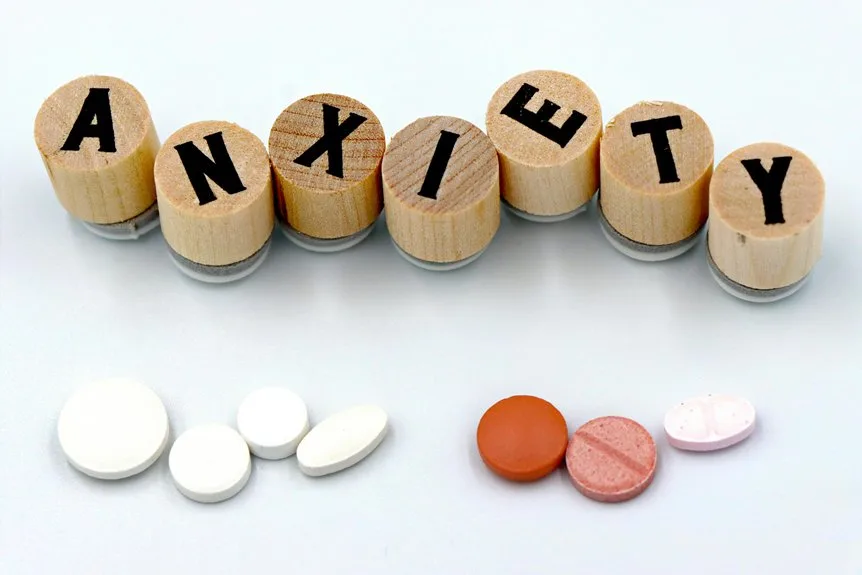Managing stress can feel like a full-time job for busy professionals, but a few smart strategies can make a real difference. Positive self-talk, short bursts of relaxation, and making time for true rest can all help keep stress in check, even on the most chaotic days. Curious how these methods actually work in daily life, and why they stand out from the usual advice? There’s more to this than meets the eye.
Harness the Power of Positive Self-Talk
Sometimes, the biggest hurdle to overcoming stress isn’t what’s happening in the world, but the story running through someone’s mind. Positive self-talk is like an inner pep talk, using affirmations to turn “I can’t handle this” into “I can manage this.” This simple shift helps with stress relief, anxiety reduction, and enhances overall mental health. Practicing positive self-talk daily builds emotional resilience, improves confidence, and strengthens coping skills. Even teaching these habits to children can set them up for lifelong mental wellbeing. By making affirmations part of a routine, anyone can manage stress and feel more connected and enabled. Additionally, incorporating regular relaxation and wellness treatments, as offered at MoonAcre Spa, can further enhance one’s mental health journey.
Incorporate Quick Stress-Relief Techniques Into Your Day
Even on the busiest days, fitting in a few quick stress-relief techniques can make a surprising difference in mood and productivity. Deep breathing for just a couple of minutes can lower cortisol and invite relaxation. Movement breaks, like a five-minute walk or light stretching, help ease muscle tension and sharpen mental clarity. Mindfulness and grounding—such as focusing on your senses—bring you back to the present, building a sense of calm. Aromatherapy, with scents like lavender or peppermint, adds a soothing touch and helps reduce stress hormones. For a more immersive experience, planning a visit to a destination like the Kenwood Inn and Spa can provide deeper relaxation and rejuvenation with its luxurious amenities. These quick techniques are simple ways anyone can feel more connected and supported.
Prioritize Restorative Activities for Lasting Resilience
How can busy professionals bounce back from stress and keep their energy up day after day? Prioritizing restorative activities is key to stress regulation and resilience.
Quality sleep, ideally seven to nine hours, lowers cortisol and enhances emotional stability.
Mindfulness practices, like guided imagery or meditation, offer a gentle break that sparks the body’s relaxation response and supports ongoing stress management.
Progressive muscle relaxation soothes tension, while leisure routines and self-care provide emotional replenishment.
For an immersive retreat, consider visiting the Stanford Inn Resort, which offers wellness services like private yoga sessions and Massage in the Forest to help restore balance and tranquility.
Frequently Asked Questions
What Are the 3 C’s of Stress Management?
The 3 C’s of stress management—Control, Challenge, and Change—help individuals build emotional resilience, practice mindful breathing, set healthy boundaries, adopt positive thinking, improve time management, foster social support, and enhance sleep hygiene, nutritional balance, and relaxation techniques.
What Are the Three Main Strategies to Manage Stress?
Nearly 77% of people regularly experience stress, highlighting the need for effective management. The three main strategies include practicing mindfulness meditation and breathing exercises, maintaining healthy nutritional habits and sleep improvement, and promoting social connections for better work life balance.
How to Reduce Stress When You Are Busy?
To reduce stress while busy, individuals may practice mindful breathing, schedule time blocking, engage in quick workouts, try gratitude journaling, take power naps, use aromatherapy blends, attempt digital detox, repeat positive affirmations, optimize ergonomic workspace, or enjoy relaxing music.
What Are the 4 A’s of Stress Management?
The 4 A’s of stress management—Avoid, Alter, Adapt, and Accept—integrate mindful breathing, time blocking, gratitude journaling, physical activity, meditation techniques, social connection, sleep hygiene, aromatherapy practices, progressive relaxation, and digital detox for comprehensive well-being.
Final Thoughts
Like a smartphone that runs smoother with regular reboots and updates, busy professionals thrive when they intentionally recharge. Studies show even five minutes of deep breathing can lower stress markers, much like clearing digital clutter enhances performance. By weaving positive self-talk, quick relaxation techniques, and restorative habits into daily routines, anyone can keep their mental batteries charged. After all, a little maintenance goes a long way in making sure you don’t crash in the middle of life’s busiest days.







